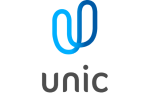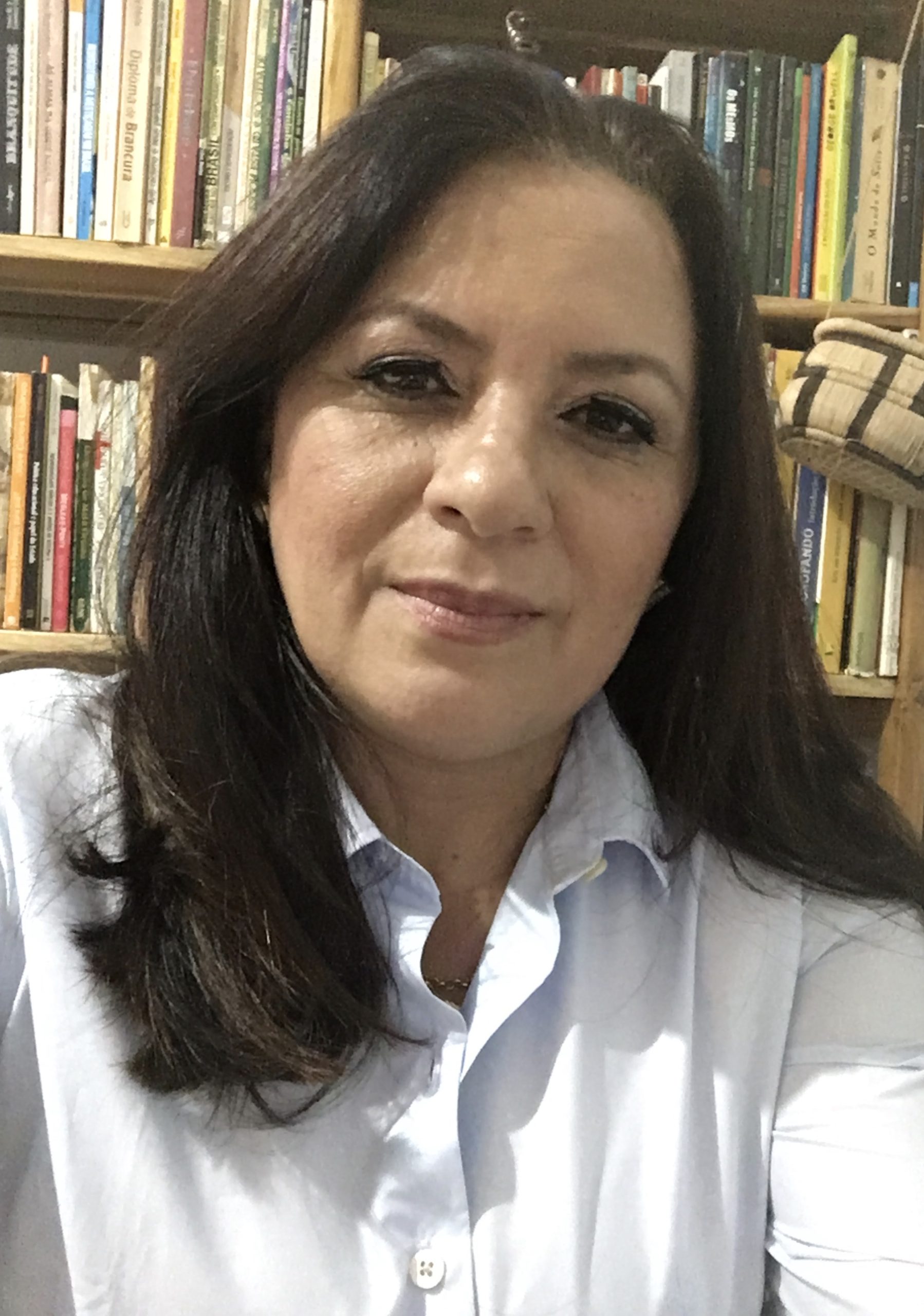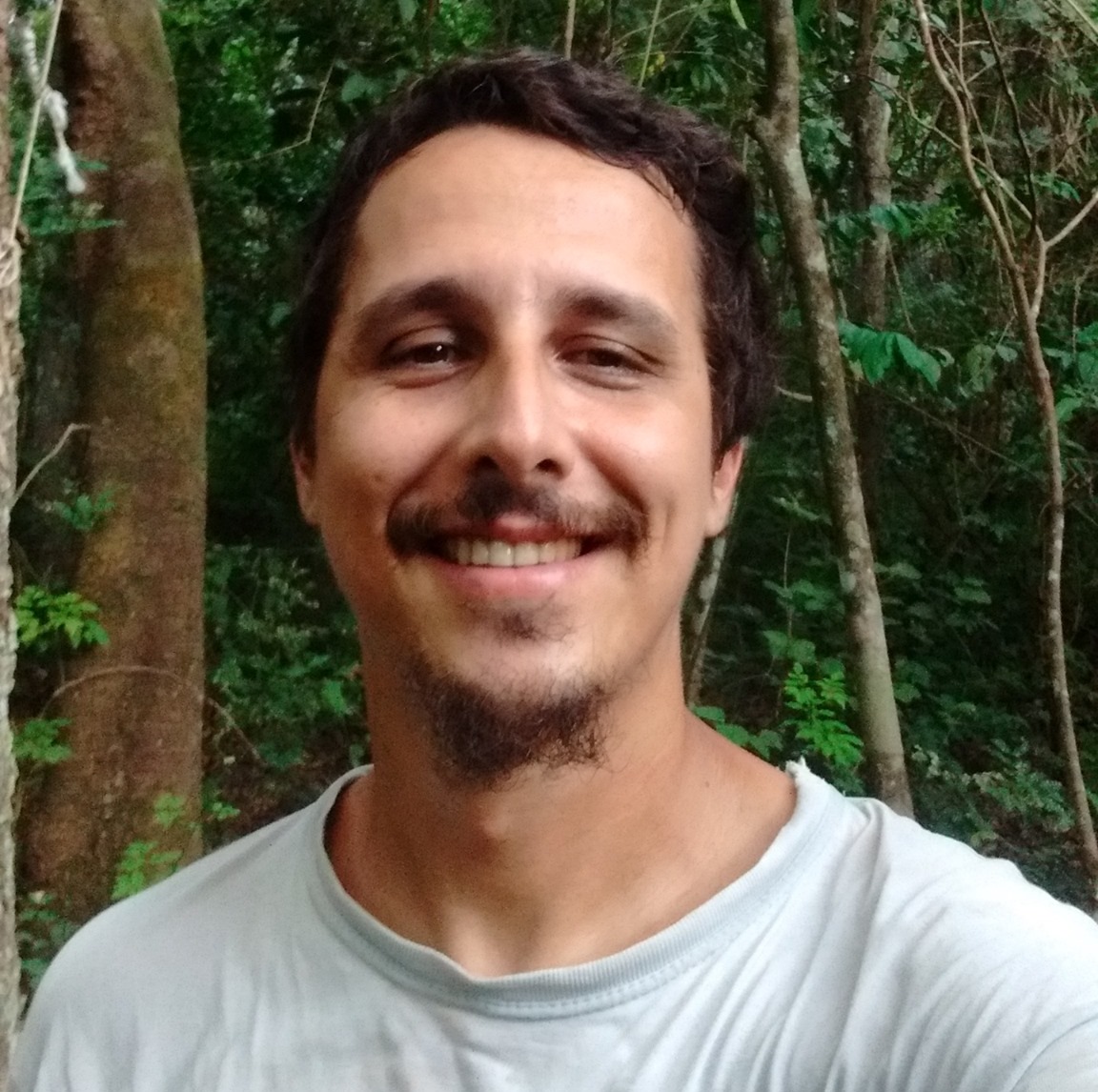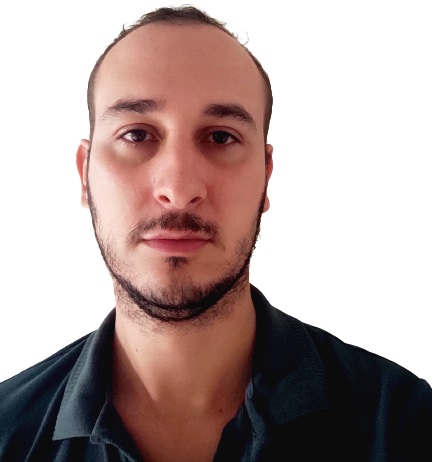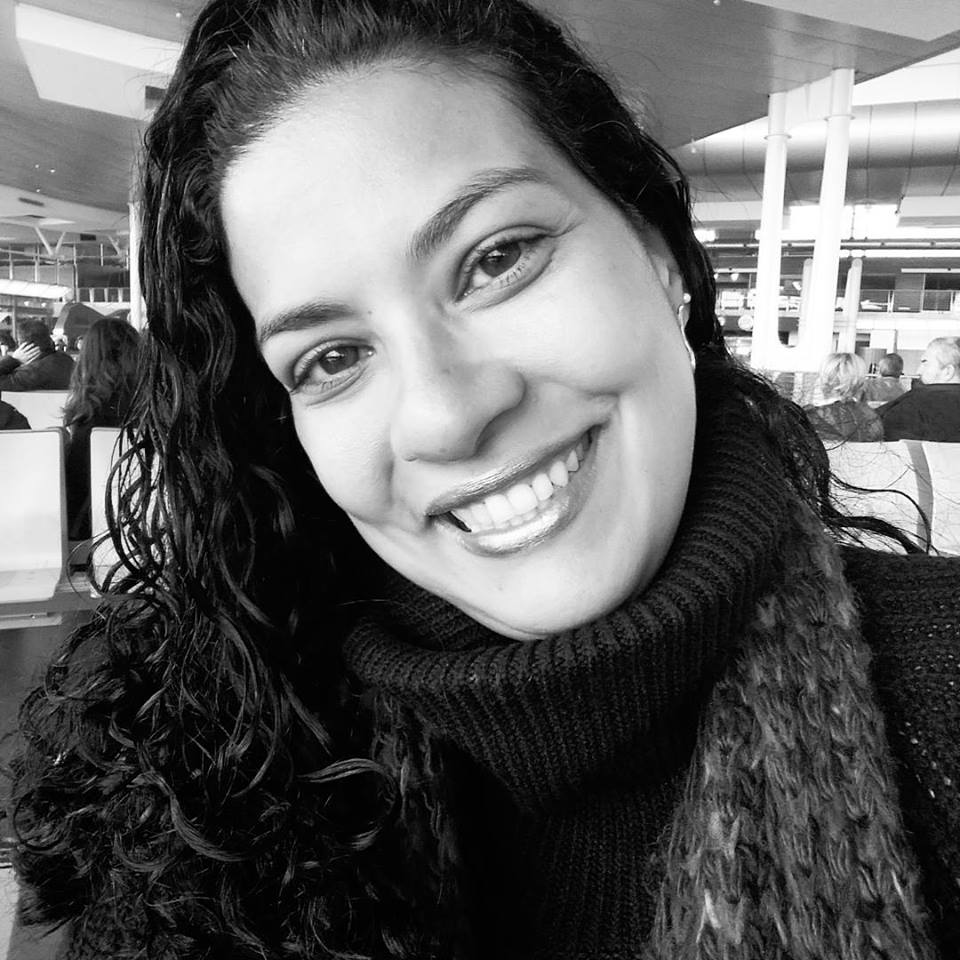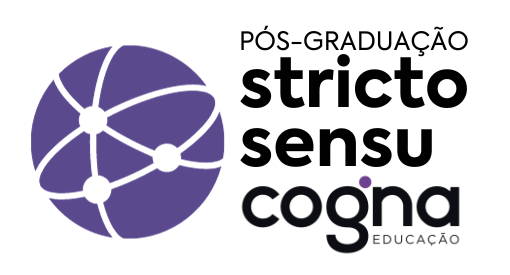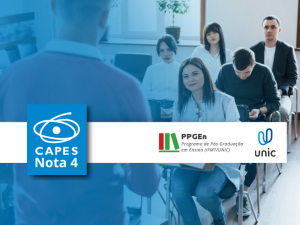
Post-graduate
Stricto sensu
MSc in
Teaching
Cuiabá – MT state
Presentation
The Stricto Sensu Graduate Program in Teaching in a Wide Association between the University of Cuiabá-UNIC and the Federal Institute of Education, Science and Technology of the State of Mato Grosso- IFMT, aims to an interdisciplinary work that combines the various areas of knowledge, in order to meet this specific demand and respond to the expectations of candidates from the various areas of training (bachelor’s, bachelor’s, and technologists) with interest in investigating teaching in their respective areas of knowledge.
Target Audience
The Academic Master in Teaching focuses on the Degrees, Bachelors and Technologists with the objective of education professors and researchers in a perspective oriented to the analysis of educational problems and implementation of proposals aimed at the quality of teaching, through the problematization and analysis of issues related to pedagogical practice, the educational technologies and the knowledge involved in the educational process.
Concentration Areas
Teaching, Curriculum, and Teaching Knowledge
The area will develop studies concerning the relations between teaching, curriculum and teaching knowledge that are built from the daily experiences that reflect in the way professors teach and guide pedagogical practices.
Research lines:
- Line 1 – Teaching-learning Languages
This Research Line aims to cover projects that deal with the constructions of knowledge from the very performance of the subjects in social practices, focusing on language
mediations, in the production of meaning and social attachment, in contemporaneity. Teacher training for didactic-pedagogical practices aimed at teaching languages and their codes. In this perspective, the aspects of transmission, reception and cognitive processes that tangle the field of language will be specially studied, in the reinvention of the processes of construction of the rituals of social attachment and autopoiesis.
- Line 2 – Theoretical and Methodological Foundations and curricular approaches to teacher training and School Education
It aims to develop studies in the theoretical-methodological perspective based on the educational assumptions linked to teaching and learning, also proposing to investigate the curricula and respective practices. The studies developed in this line also include ways of elaboration and application of educational proposals involving formal and/or non-formal spaces. The emphasis is on directing strategic actions to improve teaching action at different levels and modalities of teaching.
- Line 3 – Teaching and learning Mathematics and Natural Sciences
The research line is characterized by studies and research on the teaching of Sciences and Mathematics highlighting the epistemological, didactic and historical-cultural points of view. It investigates the history of the teaching of Sciences and Mathematics; the foundations of the process of construction of the students or teachers’ school knowledge in the teaching and learning in Sciences and Mathematics; the curriculum, its curricular components and the forms of evaluation in the teaching of Sciences and Mathematics; the initial and continuing education of teachers for the teaching of Sciences and Mathematics and their interrelations with Basic Education; the teaching and learning processes, in the scope of formal and non-formal education, at different levels of education; study and proposition of teaching and learning strategies in Sciences and Mathematics; the relations between science, technology, society and environment and their implications for the teaching of Sciences and Mathematics.
Subjects Master
- Epistemology: Theories of Knowledge (3 credits)
- Research Approaches in Teaching (3 credits)
- Research Seminar I (3 credits)
- Research Seminar II (3 credits)
- Scheduled Activities (10 credits)
Teaching Internship – (scholarship holder)
Research Line 1 – Teaching-learning Languages
- Research Trends and Approaches in Languages (3 credits)
- Theoretical and Practical Approaches to Teaching Languages (3 credits)
Research Line 2 – Theoretical- methodological Foundations and curricular approaches to teacher training and School Education
Educational Trends, curricular approaches and teaching and learning processes (3 credits)
Teacher training: theoretical aspects and research approaches (3 credits)
Research Line 3 – Teaching and learning Mathematics, and Natural Sciences
Research Trends and Approaches in Science and Mathematics (3 credits)
Epistemological and Theoretical-Methodological Foundations for Teaching Science and Mathematics (3 credits)
- Curricular Adaptations – Inclusive Knowledge and Practices (3 credits)
- Science, Technology, Society and Environment (3 credits) School Culture and Teaching Knowledge (3 credits)
- Popular Culture and Language Teaching (3 credits)
- Curriculum, Planning and Assessment of Teaching and Learning Processes (3 credits)
- Environmental Education and Teaching (3 credits)
- Mathematics Education: The Basic Education Curriculum and the Teaching and Learning Processes (3 credits)
- Distance Learning (3 credits)
- Teaching Reading and Text Production (3 credits)
- Teaching in Natural Sciences (3 credits)
- Teaching, Society and Diversities (3 credits)
- School, Memory and Narratives (3 credits)
- Strategies for Teaching
- Chemistry and the Environment (3 credits)
- Didactic Training and Teaching Work (3 credits)
- Identities and Representations in Different Languages (3 credits)
- Language and Education (3 credits)
- Historical Perspectives on Mathematics Teaching in Brazil (3 credits)
- Contemporary Poetics and Aesthetics Applied to Teaching (3 credits)
- Information and Communication Technologies (ICTs) Applied to Language Teaching (3 credits)
- 1-Teaching Reading and Text Production (3 credits)
- 1-Popular Culture and Language Teaching (3 credits)
- 1- Multimodality and Multiliteracies applied to teaching (3 credits)
- 1-Language and Education (3credits)
- 1-Information and Communication Technologies (ICTs) Applied to Language Teaching (3credits)
- 1-Identities and Representations in Different Languages (3 credits)
- 2-Teaching, Society and Diversities (3 credits) 2-Didactic Training and Teaching Work (3credits)
- 2-Curriculum, Planning and Assessment of Teaching and Learning Processes (3 credits)
- 2-32-Distance Learning (3credits)
- 2-Curriculum Adaptations – Inclusive Knowledge and Practices (3 credits)
- 2-School, Memory and Narratives (3 credits)
- 3-School Culture and Teaching Knowledge (3 credits)
- 3-Teaching in Natural Sciences (3 credits) 3-Science, Technology, Society and Environment (3credits)
- 3-Environmental Education and Teaching (3credits)
- 3-Historical Perspectives on Mathematics Teaching in Brazil (3 credits)
- 3-Mathematics Education: The Basic Education Curriculum and the Teaching and Learning Processes (3 credits)
*We do not have an open Selection Process at the moment.
Previous Selection Processes
- EDITAL – Resultado Processo Seletivo PROSUP/CAPES
- EDITAL – Processo Seletivo PROSUP/CAPES
- EDITAL – Resultado Processo Seletivo 2024/1
- EDITAL – Processo Seletivo 2024/1
- EDITAL – Resultado Processo Seletivo Estudante Especial 2023/2
- EDITAL – Processo Seletivo Estudante Especial 2023/2
- Edital Bolsas PROSUP/CAPES – 2023.1
- Processo Seletivo Estudante Especial – 2022.2 – Edital
- Processo Seletivo Estudante Especial – 2022.2 – Resultado
- EDITAL Nº004/2022 – Resultado
- Edital PROSUP/CAPES
- Processo Seletivo Estudante Especial – EDITAL Nº 029/2021
- Resultado Processo Seletivo Estudante Especial – EDITAL Nº 038/2021
- Processo Seletivo – EDITAL Nº 023/2020
- Processo Seletivo – EDITAL Nº 023/2020 – Resultado
- Processo Seletivo – PROSUP – Edital
- Processo Seletivo – PROSUP – Resultado
Course Teachers
UNIC
Colaboradores
IFMT
Contributors
Access the Dissertations of the Program in Teaching
Publications of the Program
Contatos
Professor PhD Ana Graciela Mendes Fernandes da Fonseca Voltolini
Coordinator of the Master in Teaching – UNIC
E-mail: ana.voltolini@cogna.com.br
Professor PhD Marcelo Franco Leão
Coordinator of the Master in Teaching – IFMT
Phone: (67) 3616-4100
E-mail: marcelo.leao@ifmt.edu.br
Graduates
Graduates of the Stricto Sensu Postgraduate Programs represent the legacy of excellence and dedication that the Institution seeks to cultivate over the years. Upon completing their Master’s and/or Doctorate degrees, these professionals continue to contribute significantly to the advancement of Knowledge, Science and Society in their respective areas of activity. This page is dedicated to celebrating their achievements and keeping the connection between the Institution and its alumni alive, recognizing the positive impact that each of them has generated.
Here, you will find a list of alumni contacts, facilitating the creation of collaboration networks and the exchange of experiences. This initiative aims not only to value the work of these professionals, but also to strengthen ties between the academic community and the market, promoting opportunities for partnerships, mentoring and joint projects. Discover the inspiring trajectories of our graduates and discover how Stricto Sensu training has transformed lives and boosted successful careers.
Meet the Graduates of the Teaching. Use the filter field for a specific search.
News

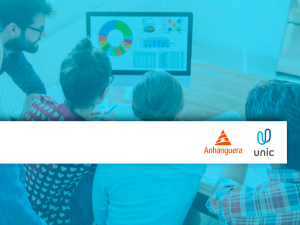
Muito Além dos Números: a Importância dos Gráficos na Formação Cidadã
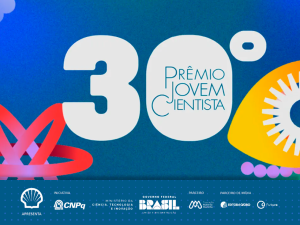
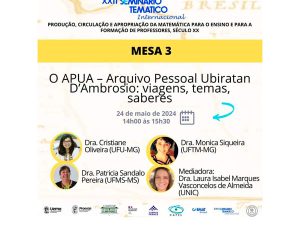
Docente, mestrandas e Egressa do Programa de Pós-Graduação em Ensino participaram do XXII Seminário Temático Internacional do Ghemat Brasil
SECRETARIA ACADÊMICA (Mestrado e Doutorado)
- secretaria.stricto@cogna.com.br
DIVULGAÇÃO
- editora@kroton.com.br
Comitê de Ética em Pesquisa - CEP
- cep.unic@kroton.com.br
Comissão de Ética no Uso de Animais – CEUA
- ceuaunic@kroton.com.br
